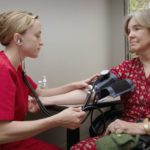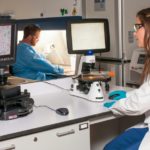
Preparing for US Hospital Residency or Fellowship
I have been involved with teaching doctors for the past 10 years. I have worked with doctors at Massachusetts General Hospital and Brigham and Women’s Hospital. I have worked with doctors virtually.
During that time, I have spent time on building doctors’ communication skills. These skills become apparently necessary when starting the application process for residency or fellowship positions.
What I have found that works.
While there are many tips out there for interviews, I have come up with some that are more applicable to doctors, which are based on feedback and experience.
Many doctors ask me what is the most important tip or idea for a successful interview. Out of all of them, I would simply say confidence.
In addition to confidence, there are 6 other points to consider.
1 Confidence
Confidence goes a long way in interviews; it definitely applies to residency or fellowship jobs.
Now, what is confidence?
Confidence is believing in oneself. It is simply a feeling of self-assurance in your abilities and qualities.
Confidence should not be confused with arrogance. Often, arrogance is showing a higher level of belief in oneself in comparison to others, and that you have nothing to learn from others.
Confident people can listen and learn; arrogant people do not listen and talk about themselves too much.
All too often, people take either the arrogance approach or they do not show confidence when answering questions or engaging in dialogue.
Why is confidence important?
Confidence is key because you can highlight your strengths and your abilities because you know you have them. If you are confident, you can talk easily about your skills, your ideas, your qualities and your goals.
To help you with this, here are some self check questions and points for you to work through.
Self-Check
What are your skills and abilities?
How confident are you?
Interview Point
Be clear about your skills and abilities.
Do not be shy about talking about them.
Provide examples of your skills and abilities.
Don’t be distracted by comments or difficult questions.
Questions
What are your strong points?
Why should we hire you?
What makes you a good candidate?
If you notice, the above questions really require confidence!
2 Research Programs
This is something that absolutely needs to be done!
If you are applying for a program or position, and you have no idea who the doctors are, or what the hospital does or is famous for, that will become apparent when you start speaking.
It’s important to know the program before you interview.
All too often, candidates might simply think I will learn about the program later and hopefully get selected for a second interview.
If you want to be in the top running for any position, it is important to get as much information about the program as possible.
Interview Point
What is the program or hospital famous for?
Who are the directors and/or department chairs?
What kind of research are they involved in? Publications?
Do they have any awards for anything?
Are they well known in your field? In your country?
Is there any doctor you want to work with?
Do you know anyone who works there or who has worked there?
Questions
Why are you interested in our hospital/program?
What do you want to accomplish in this program/hospital?
3 Be Prepared
This goes hand in hand with researching programs.
It is important to be prepared for your interview!
If you are applying for a residency program, it might be your first time interviewing for a big, life-changing position.
If you are applying for a fellowship program, you need to really show you are the candidate for them and that you know your field.
You need to be prepared.
This means you need to be familiar with all possible questions. They can be the routine questions that are asked in all interviews, no matter what field or job it is.
There can be difficult questions that throw people off – they are designed that way to see how candidates respond. Being able to respond to them is important.
Know who you are meeting with.
For residencies, you might only interview with program directors.
For fellowships, you might meet not only with the program director, but also with all of the members of the team. Each team member might be curious about you for their own reasons, and therefore ask you any question they want.
Common Questions
Why did you become a doctor?
What made you go into medicine?
Why are you interested in specialty?
Where do you see yourself in the next 5 years?
Technical Questions
Tell me about a difficult case you had. What did you learn from it?
What is the typical workup plan for condition?
Challenging Questions
What are some challenges in specialty?
What are you most afraid of?
How do you handle criticism?
What do you do when you don’t agree with a coworker?
It is important to be ready for any and all types of questions.
4 Listen
Listening is another overlooked skill in interviews.
However, it is sometimes easy to listen to what we want to hear and not what was actually asked or said.
It is important to listen critically.
If you prepare for questions well (see above 3 Be Prepared), you will be ready to answer. But, there are always variations of questions.
These variations require a change to your response.
The only way to do this is through listening.
Listening is also important because you can:
- avoid asking future questions that are explained or talked about
- avoid going off track with the question
- avoid answering the wrong way
- get a feeling of the interviewer
- get a feeling of the position
- understand what they want from you
One thing to remember is that humor can be used in interviews – not directly, but casually in transitions or small talk. If you do not hear the humor – whether it is sarcasm, irony or a simple joke – you miss the opportunity to connect with the interviewer.
Self Check
What is difficult about listening for you?
Do you think you are a good listener?
Interview Point
It is okay to ask to repeat a question if you do not understand.
5 Let Interviewer Lead
While you may be tempted to start speaking, you should let the interviewer lead the dialogue.
The interviewer may or may not have a lot of time to meet with you.
The interviewer is busy.
He or she may have several interviews lined up that day. One doctor I know had to meet with 17 doctors in one day, each for about 10 to 15 minutes.
The interviewer also has a fixed idea of what the program wants and is looking for.
It is important to let the interviewer start and direct the discussion or conversation.
Interview Point
Answer the questions as asked. It is okay to elaborate, but
make sure you stick to the topic.
Pay attention to the interviewers’ body language/facial expression to see if you can continue.
Use the time wisely and answer the questions to your best!
6 Relate Your Experience
It is important to relate your experience to the position you are interviewing.
Sounds simple, right?
Sometimes doctors are in a certain field, but they do not have experience in everything related to that field.
For example, if you are involved in reconstructive surgery, you might have experience with some procedures. However, you might not have any cosmetic procedure experience, such as rhinoplasty.
Know your experience and be good at telling it.
In the interview, you have to highlight what you have done and what you are comfortable doing.
When you do this, the interviewer can get an idea of what you have done and what you can do in the future.
Aim to get experience.
Now, what if you don’t have any experience, such as in the rhinoplasty experience as mentioned above?
You can simply state it is something that you want to get experience in, and that you are excited about the opportunity to learn.
If you do not have any particular experience in that field, but you have some related experience, then it is important to connect that and mention it.
Interview Point
Highlight what you can do in that field.
Emphasize that you want to learn all you can in that field as well.
Mention any experience that you have that can help.
7 Make A List of Questions To Ask
At some point, the interviewer will ask – hopefully! – if you have any questions.
This is the perfect opportunity to get answers and find out more about the program.
Of course, this requires research!
There are no right or wrong questions to ask. Sometimes people think it is not good to ask questions because it makes someone look unprepared. That is farther from the truth.
Asking questions shows that you were paying attention and that you are really interested in the program and all that it has to offer.
Self Check
What do you want to know about the program?
What are your concerns about the program?
Why do you really want to work there?
Interview Points
For surgeries, you can ask about the average number.
Ask about research opportunities.
Ask about mentoring programs.
Ask about any upcoming changes to the program or hospital.
What if English is not my first language? What should I say?
Given that your interview will be in English, it is not useful to say that you are not comfortable in English. Remember, confidence is everything.
If you are not comfortable with English, it is important to rethink your goals and your direction.
If you need more time to practice questions or to practice general conversation, it is important to set a schedule and plan and follow it.
PS – Smile
No matter what, smile when you can. The power of a smile can really go a long way. I know it might seem counterintuitive as medicine is a serious business.
However, a smile shows you are comfortable and friendly and able to relate to people – something that all doctors need to be.
Final Thoughts
There you have it – 7 tips plus a smile – to get you ready for your residency or fellowship interview.
A good idea is to practice with a friend or study partner; they can also point out points you need to work on.






